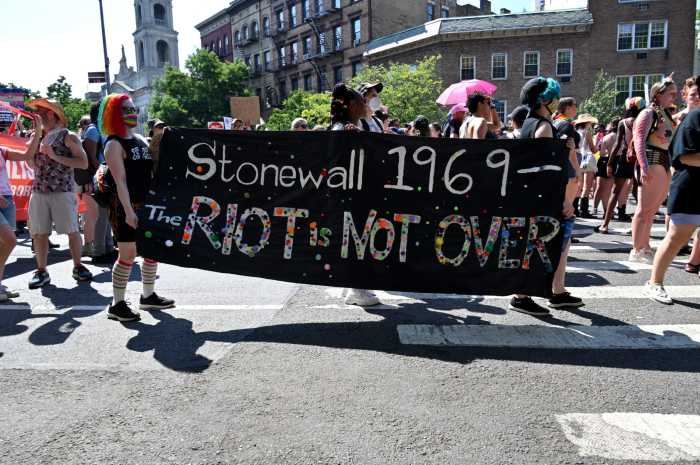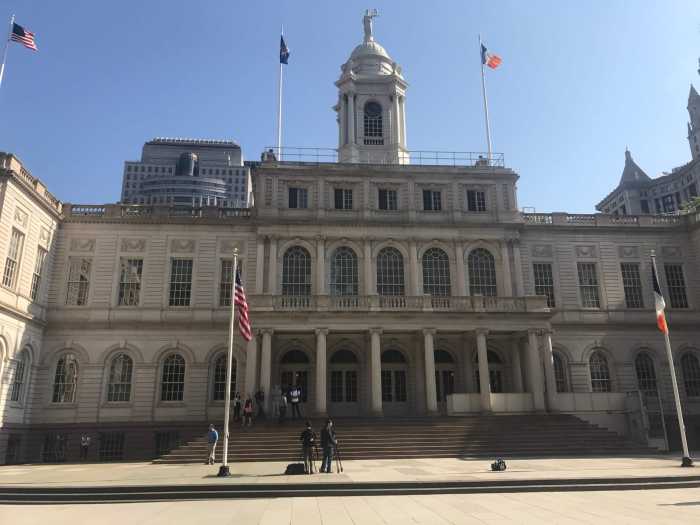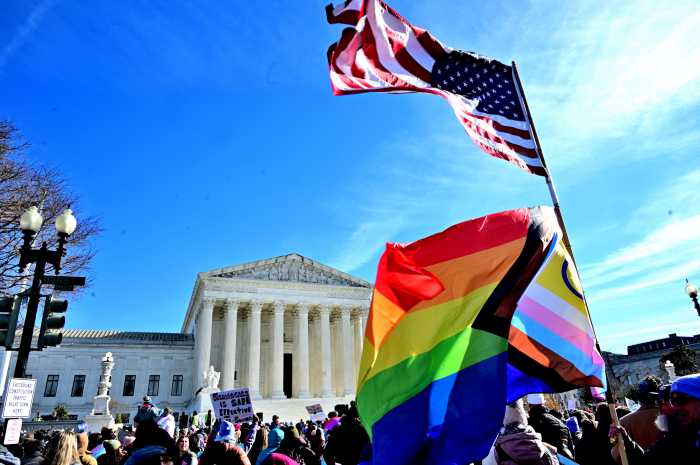BY DUNCAN OSBORNE | The introduction of the Equality Act in Congress is notable for its record number of co-sponsors in the House and Senate. Outside of Capitol Hill, few voices support the legislation, and one group, GetEQUAL, opposes it after demanding such a law for five years.
GetEQUAL doesn’t understand this legislation.
The Equality Act would add sexual orientation and gender identity to the Civil Rights Act of 1964. To appreciate that law, let’s recall Martin Luther King’s mislabeled “I Have a Dream” speech, which was delivered at the 1963 March on Washington for Jobs and Freedom. Note the title — Jobs and Freedom.
That speech was concerned with economic justice as much as it was concerned with ending segregation and discrimination. In the fourth paragraph, King called the Declaration of Independence a “promissory note” and said, “It is obvious today that America has defaulted on this promissory note, insofar as her citizens of color are concerned. Instead of honoring this sacred obligation, America has given the Negro people a bad check, a check which has come back marked ‘insufficient funds.’”
King understood, as did Gandhi, the suffragettes, the abolitionists, the anti-colonialists, and others that the systems that implement misogyny, Jew-hatred, and race-hatred do more than codify prejudice into law — they are economic systems that make the oppressed pay their oppressors for their second class status. Slavery, segregation, apartheid, the Nuremberg laws, and colonialism were designed to do this.
In this country, the response to the civil rights movement was to expand the economic power of people of color by dismantling the system that punished them — this is what the Civil Rights Act of 1964 and other legislation did — and to increase the political power of people of color — this is what the Voting Rights Act of 1965 did. These laws have not been a perfect solutions, and they have been under attack since day one, but they have worked.
Because the closet protects, LGBT people were not easily identified, and we have never been subject to the highly organized attacks that segregation or apartheid represented. But anyone who has read historians Margot Canaday or William Eskridge knows that this nation did its best to try and fit us into such a system. And as we emerged from the closet, the economic penalties arrived.
During much of the 20th century, gay men who were arrested in police stings or bar raids lost their jobs after police informed their employers of the arrests. Historian David Johnson proved that the McCarthy era witch hunts were largely interested in identifying LGBT government employees and firing them.
In the early years of the fight for relationship recognition, the domestic partners of lesbian and gay employees who were receiving health insurance coverage from their partner’s employer paid taxes on that coverage. The spouses of married heterosexuals who had such coverage paid no tax on those benefits. In effect, gay and lesbian couples were subsidizing an institution they were excluded from.
Today, the religious exemptions that conservatives seek that will allow them to refuse to hire, rent to, serve, or otherwise engage LGBT people are, in fact, economic sanctions that they want to use to attack us.
These are just a few examples. The Williams Institute at UCLA has documented the ongoing economic punishment that impacts lesbian, gay, bisexual, and transgender, especially transgender, individuals in America. The solution, or part of the solution, is to add sexual orientation and gender identity to the Civil Rights Act of 1964, which has benefited many people of color, and give us the tools to fight back against discrimination and its attendant economic penalties.


































